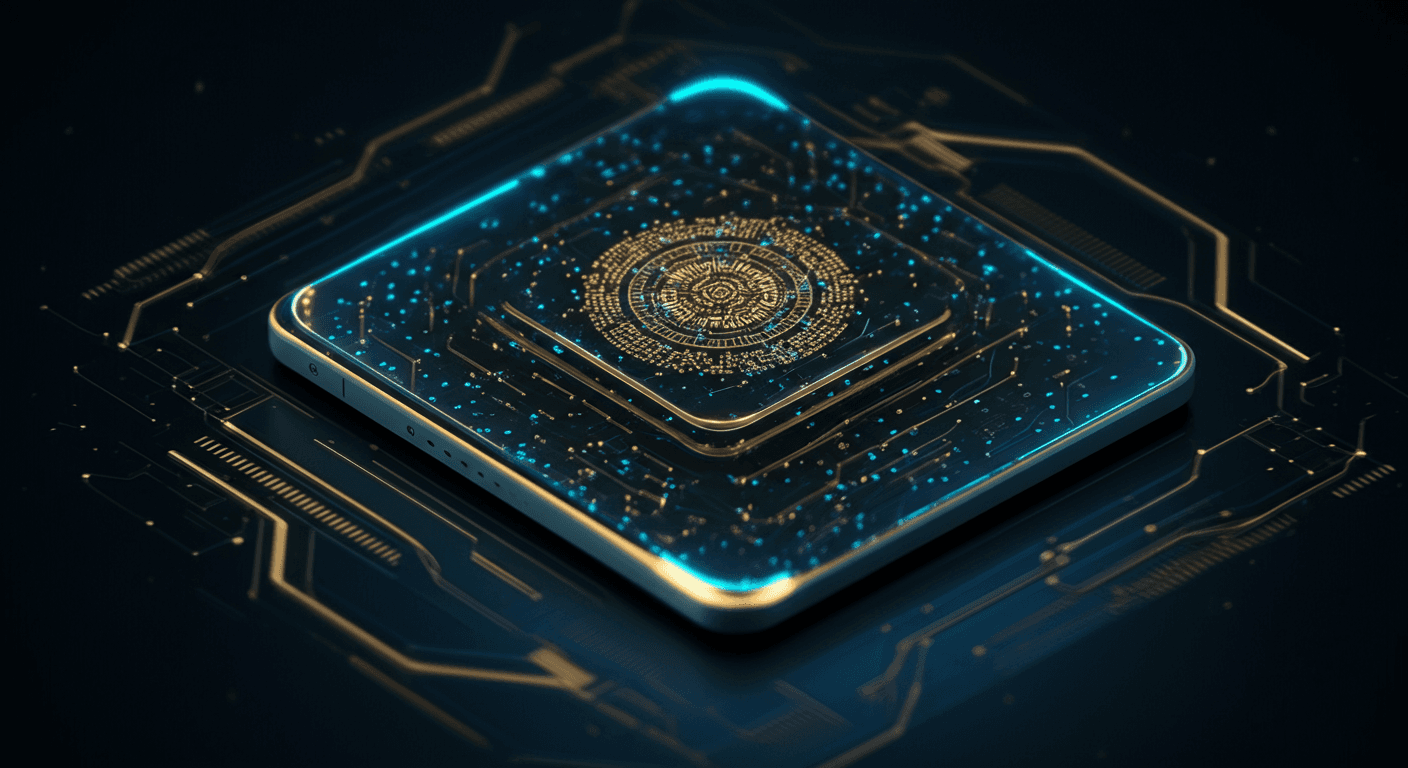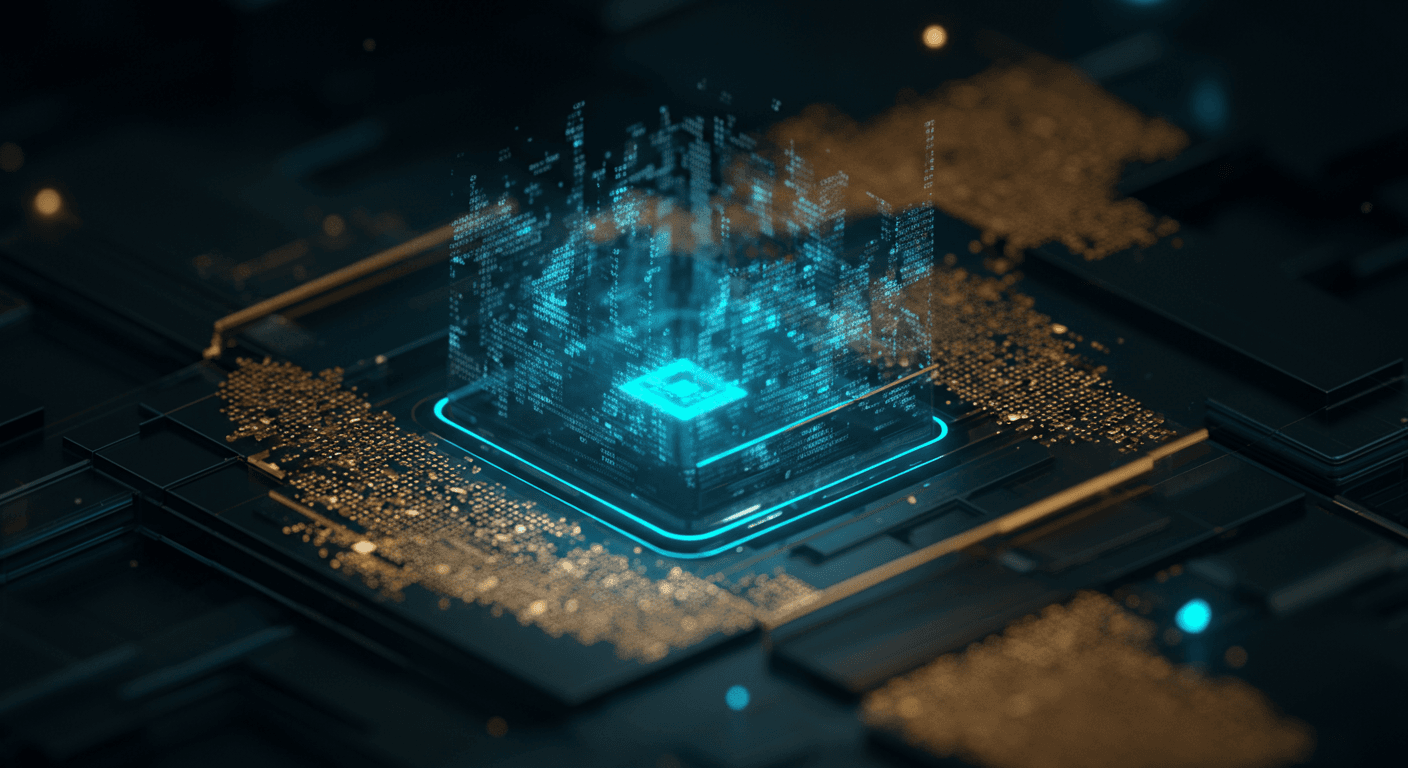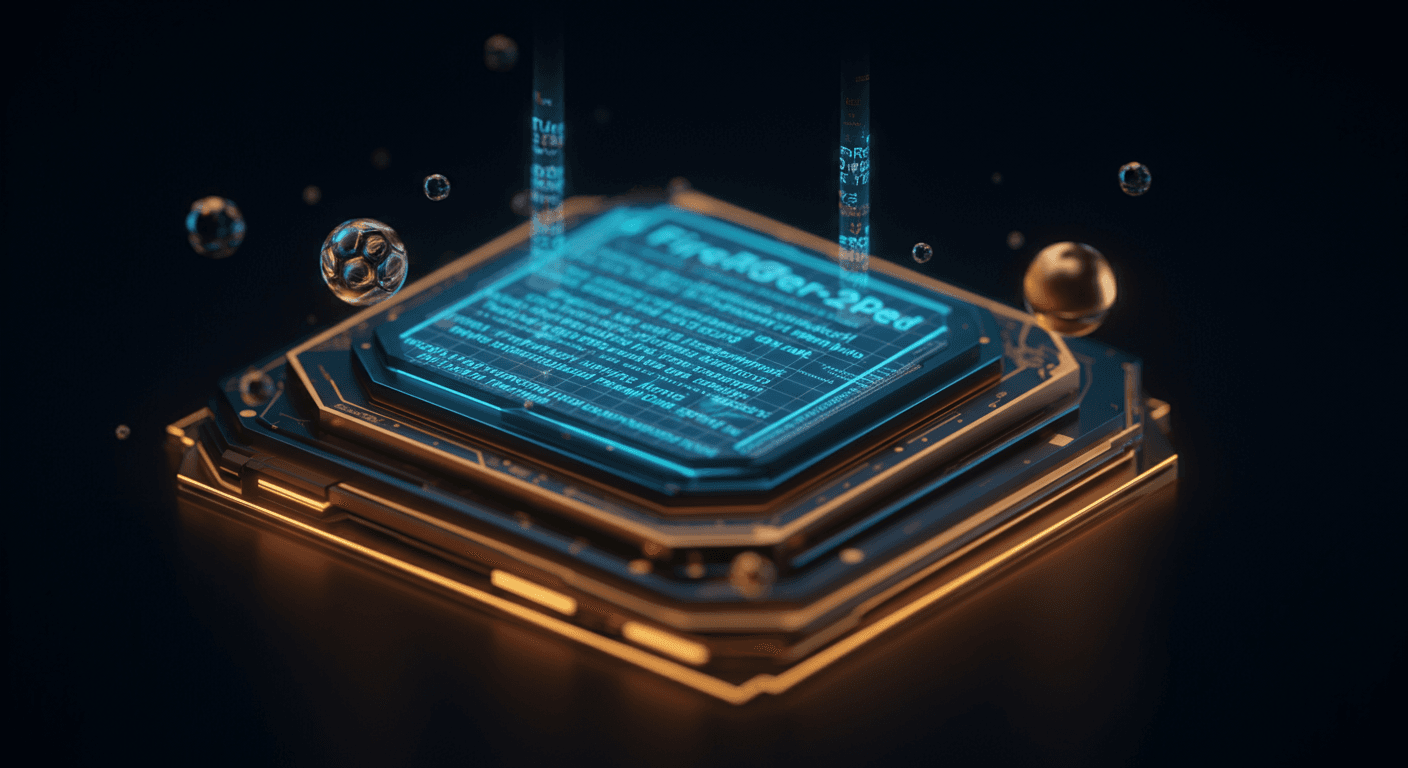AI Slop: Unmasking the Indie Game Cloning Crisis and the Fight to Protect Originality

It's no longer a question of "if" AI will impact indie games, but how much damage control we'll need to deploy.
The Rise of AI Slop: How AI is Cloning Indie Games
'AI slop,' in game development terms, refers to the deluge of low-effort content that uses readily available AI tools to mimic popular indie games. It's like taking the essence of Stardew Valley or Hollow Knight, running it through a generic AI generator, and churning out something superficially similar but fundamentally lacking in heart and originality.
AI Accessibility: The Floodgates are Open
The availability of AI Image Generation tools, Code Assistance, and even AI-powered game engines means that anyone can now produce a game-like product with minimal effort. This accessibility isn't inherently bad, but it lowers the barrier to entry for derivative, uninspired work. With user-friendly tools and platforms, AI slop is becoming a force to be reckoned with.
Indie Games in the Crosshairs
AI isn't just inspiring games; it's often directly copying them.
We're seeing instances of AI-generated games that lift entire mechanics, art styles, and even storylines from successful indie titles. Imagine a roguelike platformer that's essentially Dead Cells with a reskin, or a farming simulator that shamelessly clones Animal Crossing. These aren't homages; they're often blatant attempts to ride the coattails of success, diluting the market and harming the visibility of truly original works. Browse-ai can also be useful to keep track of any AI development.
Examples in the Wild
While naming names can be tricky (and potentially litigious), reports are surfacing of games on various platforms that bear an uncanny resemblance to existing indie hits. Think pixel-art RPGs mirroring Undertale's charm but with AI-generated dialogue, or puzzle games echoing Baba is You but with less clever level design. The line between inspiration and outright copying is blurring, and it's the indie developers who suffer.
Platform Proliferation
These AI-generated copies aren't just staying in obscure corners of the internet; they're rapidly appearing on major game platforms. Steam, the iOS App Store, and Android's Google Play Store are all seeing an influx of these 'AI slop' titles, making it harder for genuine indie games to stand out. The sheer volume of these clones threatens to overwhelm the market and drown out original voices.
In short, the indie game scene is facing a crisis of originality thanks to the ease of AI-powered cloning. The solution? It's up to us to cultivate value around unique game creations. Next, we'll look at how to champion artistic integrity.
It's a brave new world, where AI can whip up a game that feels suspiciously familiar.
The Mechanics of AI Cloning: How It Works

AI cloning isn't about copying files; it's about understanding and replicating core elements. Think of it as reverse engineering a recipe, then using AI to automate the cooking process.
AI Asset Creation: Tools like Design AI Tools are used to create art assets in the style of existing games. Imagine specifying "a character that looks like it belongs in Hollow Knight*," and the AI generates variations.
- Code Generation: AI can analyze existing game code (not by copying it wholesale, but by observing its function) and generate similar code for new features or mechanics. Code Assistance tools help automate this.
- Level Design: Machine learning models can analyze level layouts, identifying patterns and structures. Then, they can create new levels that mimic the feel and difficulty of the original.
- Prompt Engineering Nuances: The fidelity of the clone depends heavily on the prompts given to the AI. A well-crafted prompt can guide the AI toward creating elements that are nearly indistinguishable from the original. For example, specifying exact color palettes or compositional rules. Check learn prompt engineering to upskill.
Technical Challenges and Limitations
Despite its capabilities, AI cloning has its limits:
- Originality: AI is great at imitation, but not necessarily at innovation. Clones often lack the spark and originality of the source material.
- Bugs and Errors: AI-generated code can be buggy and prone to errors. Careful testing and debugging are still essential.
AI cloning is like having a super-efficient sous chef – skilled, but not quite ready to run the kitchen. As AI continues to evolve, so too will the challenges and opportunities in the world of game development. Next, we'll dive into the ethical gray areas...
It's tough being original in a world where AI can "learn" and replicate at warp speed.
Ethical and Legal Minefield: Copyright and AI-Generated Content

The rise of AI cloning presents a messy legal tangle, particularly when it comes to copyright. Can an AI truly "clone" an indie game and sidestep copyright laws? The short answer is...complicated.
- Copyright Infringement is Tricky: Proving copyright infringement becomes a Herculean task when AI is involved. Did the AI directly copy code, art, or music? Or did it merely "learn" from it and create something "new?" This gets murky fast. For example, if an AI uses a tool like Runway, which offers AI-powered video editing, to create derivative works, who owns the copyright? Runway? The user? The original creator?
- Current Frameworks Fall Short: Existing copyright laws weren't written with AI in mind. They struggle to address the unique challenges AI-generated content poses. Is the AI the "author"? Is it the user who prompted the AI? The current legal landscape regarding AI-generated content copyright law is still evolving. The legal status of AI's role in creation remains unclear.
- Future Legislation is Key: We desperately need new laws and regulations to address AI cloning. Expect to see increased pressure on lawmakers to define the legal boundaries of AI-generated content and protect intellectual property. Until then, originality is vulnerable.
Remember, just because AI can do something, doesn't mean it should.
Navigating this ethical and legal minefield requires careful consideration and a commitment to respecting the creative rights of others. The fight to protect originality is far from over. The next step?
One developer's brilliant game idea can be cloned and saturating the market within weeks thanks to AI, creating a high-stakes David vs. Goliath scenario.
The Indie Grind, Amplified by AI
Indie developers pour their hearts, souls, and often their life savings into crafting unique gaming experiences. The rise of AI-powered cloning tools threatens to undermine this creative process. The core problem is that AI can now rapidly produce games that, while lacking true originality, are "good enough" to siphon off sales. This directly impacts indie developers' livelihoods, making it harder to recoup investments and continue making art."It's like fighting an invisible army. We spend years honing our craft, and then something that resembles it pops up overnight, made by an algorithm." - Anonymous Indie Developer
The Challenges of Competition & Protecting Indie Games from AI
- Resource Disparity: Indie devs simply cannot compete with the speed and scale of AI. While tools like Code Assistance can improve individual productivity, they can't replicate a team effort.
- Devaluation of Innovation: When derivative, AI-generated content floods the market, it cheapens the value of genuinely original ideas. Consider the impact on Design AI Tools: AI might generate derivative art, but lacks the artistic vision behind a truly innovative game.
- Intellectual Property Headaches: Proving copyright infringement against AI-generated content can be a legal nightmare, requiring resources that most indie studios don't have. Exploring services such as AI Lawyer might help indie devs with this issue.
- Erosion of Creative Freedom: If developers are constantly worried about being cloned, they may become less willing to take risks and experiment with new concepts.
Strategies for Survival
Despite these daunting challenges, indie developers are not without recourse. Exploring unique art styles that are difficult for AI to replicate, or fostering strong community engagement can all increase your chances of success. By focusing on innovation and community, the spirit of indie gaming can endure.The fight for originality in indie games is far from over, with human ingenuity being the key to victory.
Platforms like Steam, Google Play, and the App Store are now battlegrounds where indie game developers fight for survival against a rising tide of AI-generated clones.
Platform Policies: A Patchwork Defense
Each platform has its own policies regarding AI-generated content, but they often fall short: Steam: While technically* requiring disclosure of AI use, enforcement is often lax, leaving the floodgates open. TheSteam AI game policy is difficult to navigate, resulting in many instances of blatant clones slipping through.
- Google Play & App Store: Similar issues plague these mobile marketplaces. The sheer volume of submissions makes comprehensive review nearly impossible.
- These inconsistencies place the burden of detection on indie developers, forcing them to spend precious time and resources on DMCA takedowns instead of creation.
The Challenge of AI Clone Identification
"Distinguishing between an 'inspired by' game and an outright AI clone is becoming increasingly difficult."
AI can now mimic art styles, mechanics, and even narrative structures with alarming accuracy. Existing algorithms designed to detect plagiarism struggle with the nuances of game design. Moreover, platforms lack the specialized tools needed to analyze gameplay mechanics or code for AI-generated origins.
Proactive vs. Reactive: A Question of Ethics (and Resources)
Should platforms implement stricter, proactive review processes to identify potential clones before they go live, or should they rely on reactive takedowns after a developer reports an infringement?| Approach | Pros | Cons |
|---|---|---|
| Proactive | Deters AI slop from entering the market, protects indie developers. | Requires significant resources and expertise; risks false positives. |
| Reactive | Less resource-intensive for the platform. | Places burden on indie devs; clones can profit before removal; damage is done. |
It’s time for platforms to invest in robust AI detection tools and implement stricter review processes to protect the creative ecosystem. The Guide to Finding the Best AI Tool Directory can help developers find resources, but the responsibility ultimately lies with the distributors.
Here's how indie devs can reclaim their creative space from the clutches of AI cloning.
Fighting Back: Strategies for Combating AI Slop
The rise of AI-generated clones stealing indie game concepts demands a multifaceted defense. Think of it as deploying anti-AI game cloning techniques on multiple fronts.
Watermarking and Anti-Copying Technologies
"A digital signature on your creation can act like a fingerprint, proving its authenticity."
- Visible Watermarks: Strategically placed but unobtrusive, these act as a deterrent and a flag for infringement.
- Invisible Watermarks: Embedded within the code or textures, these are harder to detect but can be extracted to prove ownership. Explore options provided by Design AI Tools to create unique visual signatures.
- Blockchain Integration: Consider using NFTs to register original game assets, providing an immutable record of creation.
Community Reporting and Advocacy
The power of the collective is immense.
- Establish Reporting Channels: Make it easy for players to report suspected clones. Offer in-game reporting features or utilize forums.
- Engage Your Community: Rally your fans to actively search for and flag clones on storefronts. A dedicated community can act as an active defense against AI-generated rip-offs.
- Amplify Your Voice: Use social media to raise awareness about the issue of AI cloning and advocate for stronger protection of intellectual property. You could target AI Enthusiasts to grow your movement.
Legal Avenues: DMCA and Beyond
- DMCA Takedown Notices: These can be effective for removing infringing content from platforms. Learn more about your legal options on our Legal page.
- Copyright Infringement Lawsuits: In cases of blatant and substantial copying, consider legal action against the clone creators. While expensive, this can set a precedent and deter future infringement.
Is This Enough?
While the strategies outlined here offer a fighting chance, it’s clear that the battle against AI cloning requires a blend of technological solutions, community activism, and legal enforcement. It's a brave new world, and we must adapt, innovate, and advocate to safeguard the creative spirit of indie game development. Check out AI News for more AI cloning updates.
Gaming's next level could be truly immersive and innovative, but we’re increasingly seeing a flood of copycat titles riding the AI wave.
The Ethical Frontier of AI Gaming
AI's role shouldn't be limited to generating endless clones; it can be a powerful tool for enriching the gaming experience.- Enhancing Creativity: Imagine AI as a collaborator, not a replacement. Think procedural generation on steroids, creating unique levels or storylines that adapt to player choices, fostering deeper engagement. Consider AI Dungeon an early, albeit text-based, example of dynamically generated adventures.
- AI-Driven Personalization: AI can tailor the game to the individual, adjusting difficulty, offering personalized tips, or even creating custom quests based on play style. This level of personalization could elevate the player experience to unprecedented heights.
A Call for Transparency and Originality
The current landscape demands a shift towards responsible AI development in gaming.
We need a clear understanding of how AI is being used, ensuring it complements and enhances human creativity rather than stifling it.
- Support Original Creators: It's crucial to champion studios pushing boundaries with novel AI implementations. Explore 3D Generation AI Tools that empowers digital artist and game designer..
- Transparency is Key: Developers should be upfront about AI's role in their games. Let players know what's human-made and what's AI-generated, fostering trust and informed decisions.
Striking the Right Balance
The future of AI in gaming isn't about wholesale replacement; it's about finding harmony. We must embrace AI's potential while diligently mitigating its risks. It's about fostering a game development ecosystem where originality thrives, and AI serves as a catalyst for innovation. As we've seen in design with tools like Canva Magic Studio, AI can empower creativity. The same holds true for gaming, but only if we proceed thoughtfully.
Keywords
AI slop, AI game copycats, game cloning AI, AI ethics in gaming, AI-generated games, indie game development AI, AI copyright infringement, protecting game IP, AI and game design, AI content generation issues
Hashtags
#AISlop #GameCopycats #AIEthics #IndieGameDev #CopyrightAI
Recommended AI tools
ChatGPT
Conversational AI
AI research, productivity, and conversation—smarter thinking, deeper insights.
Sora
Video Generation
Create stunning, realistic videos & audio from text, images, or video—remix and collaborate with Sora 2, OpenAI’s advanced generative app.
Google Gemini
Conversational AI
Your everyday Google AI assistant for creativity, research, and productivity
Perplexity
Search & Discovery
Clear answers from reliable sources, powered by AI.
Cursor
Code Assistance
The AI code editor that understands your entire codebase
DeepSeek
Conversational AI
Efficient open-weight AI models for advanced reasoning and research
About the Author

Written by
Dr. William Bobos
Dr. William Bobos (known as 'Dr. Bob') is a long-time AI expert focused on practical evaluations of AI tools and frameworks. He frequently tests new releases, reads academic papers, and tracks industry news to translate breakthroughs into real-world use. At Best AI Tools, he curates clear, actionable insights for builders, researchers, and decision-makers.
More from Dr.Was this article helpful?
Found outdated info or have suggestions? Let us know!


